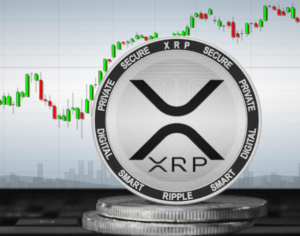#CryptoRegulation #FIT21 #DigitalAssets #CryptoInnovation #BipartisanSupport #SEC #CFTC #CryptoPolicy
On Wednesday, a historic event unfolded in the cryptocurrency sector as the US House of Representatives passed the Financial Innovation and Technology for the 21st Century Act (FIT21), a significant move towards establishing a robust regulatory framework for digital assets. The bill garnered impressive bipartisan support, passing with a 279-136 vote, symbolizing a significant stride toward legal clarity within the crypto space. This legislative victory indicates a pivotal moment in the ongoing dialogue around cryptocurrency regulation, with 71 Democrats and 208 Republicans voting in favor, reflecting a growing consensus on the urgency for clear and fair crypto regulations.
FIT21 aims to delineate the responsibilities of the Securities and Exchange Commission (SEC) and the Commodity Futures Trading Commission (CFTC) in overseeing the crypto market. It proposes guidelines for token issuance, trading, and custody, addressing key aspects of the market that have long been topics of concern within the crypto community and beyond. With support from various legislators, including Congressmen John Rose and Wiley Nickel, the bill advocates for moving away from the current ‘regulation by enforcement’ approach, proposing instead a modernized regulatory framework that recognizes the unique attributes of digital assets. This legislative effort is praised by industry leaders as well, with Ripple CEO Brad Garlinghouse and Variant’s Chief Legal Officer Jake Chervinsky acknowledging the bill’s passage as a step forward in fostering innovation while ensuring consumer protection.
Despite this notable progress, the bill’s journey is far from over, as it now faces an uncertain future in the Senate. The absence of a counterpart bill and requisite committee work on crypto regulation in the Senate presents obstacles, compounded by the White House’s expressed concerns over the bill’s current form, particularly regarding consumer and investor protections. Nevertheless, the administration’s willingness to collaborate on developing comprehensive digital asset legislation implies an open door for further discussions.
This legislative milestone marks a critical phase in the crypto industry’s quest for regulatory clarity in the United States. With FIT21 now headed to the Senate, the outcome will be closely watched by industry participants and regulators alike. The bill’s journey underscores the complexities of regulating an innovative and rapidly evolving sector like cryptocurrency, balancing the need for innovation with ensuring adequate protections. As the debate continues, the ultimate goal remains clear: forging a regulatory environment that supports digital asset innovation while safeguarding investors and consumers.







Comments are closed.